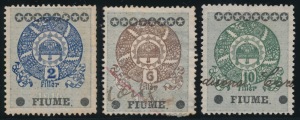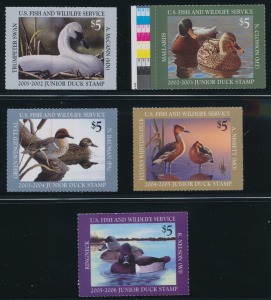Occupation stamps are war time issues that are printed by an occupying force for use in the territory of a conquered area. As such, they are usually quite popular in the country that did the occupying, as sort of a jingoistic memory, and quite unpopular in the country that was occupied, reminding them of their weakness and pain. For example, the Japanese issued hundreds of occupation stamps for their military conquests of East Asia during WW II. These stamps are rarely collected by native Chinese, Burmese or Filipino collectors. But they are avidly sought out by native Japanese. Indeed, when dealers list them in their catalogs they are listed under the issuing country (in this case Japan) as that is where the real interest lies.
There is one exception to this rule is the Germans. They collect the WW II Occupation of Germany more avidly than do any of the occupiers and are especially assiduous in col
Monthly Archives: June 2022
- Posted June 29, 2022in NewsRead more »
- Posted June 25, 2022in NewsRead more »
There are two major European cities that share a history of constant political change. Danzig in the north is at the border of the German and Russian areas of influence and has changed political affiliation many times, with incarnations as Polish/Russian dominated, German dominanted and independent. In southern Europe, Fiume is a philatelic entity at the northern end of the Adriatic sea which has formed a border between the Austro Hungarian Empire, the Ottoman Empire and the Italian area of influence. Fiume too has seen major political changes. In the post Napoleonic period, Fiume was part of Hungary, which operated under the jurisdiction of the Austro-Hungarian Empire. Fiume was the major port for the Hungarian section of the Empire. WWI saw the dismantling of the Austro-Hungarian Empire and Fiume was wrested from Hungary and given to Italy to administer (Hungary was left without a port and without a navy which created the anomaly that the WWII era leader of Hungary was a former naval
- Posted June 18, 2022in NewsRead more »
Revenue from the sale of stamps fund many worthwhile projects. Early in the twentieth century, the first philatelic exposition souvenir sheets were issued to help pay for some of the world's first stamp shows. Most European countries today issue semipostals, stamps with a charity surcharge, to fund the work of the Red Cross or to fight cancer. And many smaller third world counties subsidize their government budgets with profits from the sale of stamps to collectors. America has been lax in using funds from commemorative stamp sales to fund worthwhile projects. Perhaps our secular tradition makes it difficult for quasi government organizations to get involved in charity work which is traditionally seen as the bailiwick of religion. Or perhaps we are such a fragmented society that we can't agree on which charities, if any, are worth government funding. But a diverse constellation of interest groups lined up over the Junior Duck Stamp program. He
- Posted June 01, 2022in NewsRead more »
Luxembourg is a small and wealthy country located between France and Germany. In 1940, Luxembourg was on the invasion route that Nazi forces took to overrun France and the government of Luxembourg was quickly overthrown. As they did for most of the countries that they occupied, the Germans quickly issued Occupation stamps. The most remarkable thing about the German Occupations were the abundance of philatelic items that they produced. The Third Reich in the early WW II period seemed to do three things particularly well- quickly overrun their enemies, round up Jews and other undesirables for extermination, and create philatelic occupation covers. The cover here was made by a Nazi philatelist who sent the Occupation stamps on a registered cover home. The Germans were ( and are) a nation of stamp collectors and much WW II related occupation material exists as momentos sent home by Hans to show where he had been. And the war in the early years was easy for the German Army as it met little re



